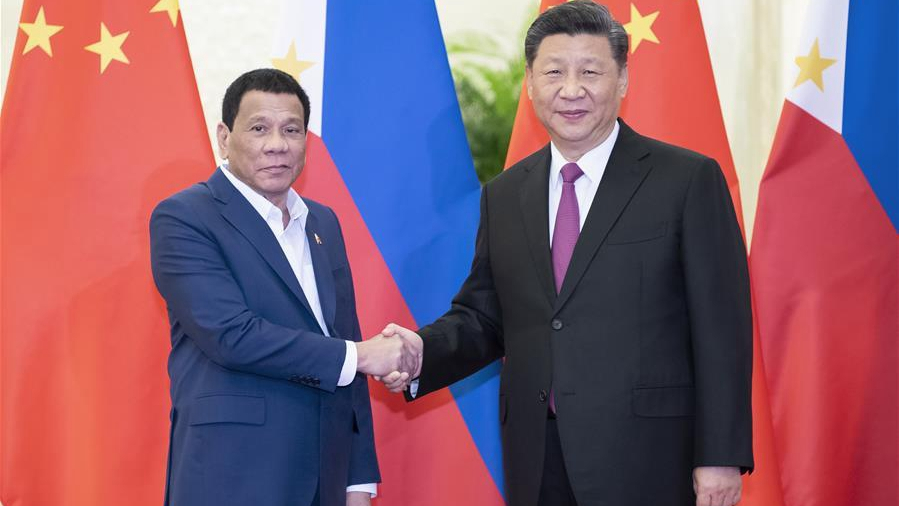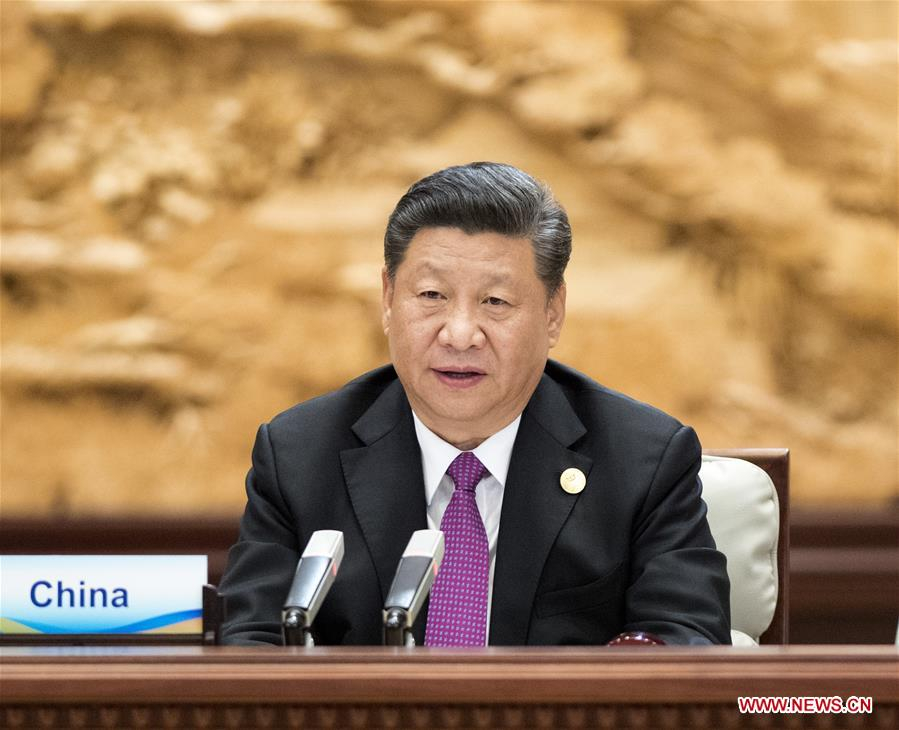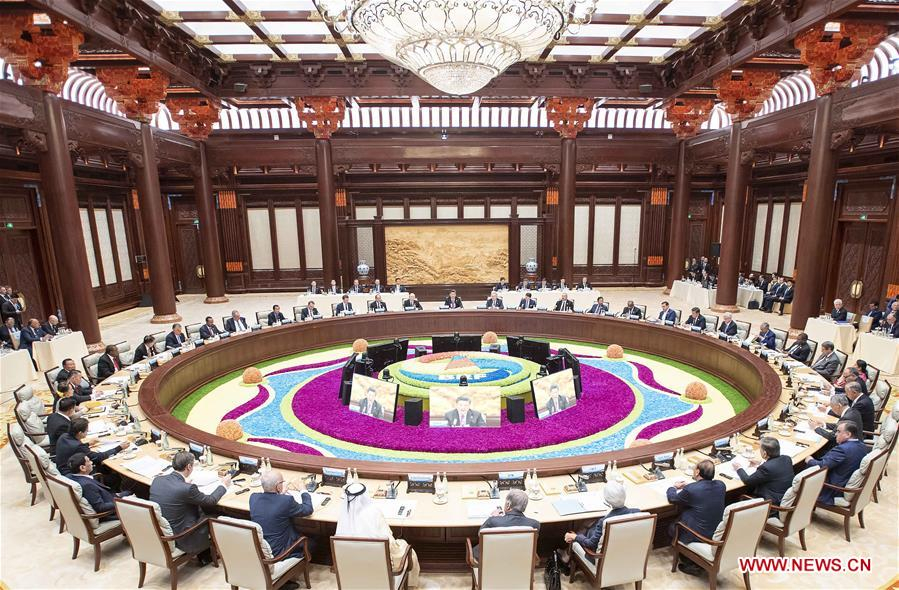
Opinion
14:38, 28-Apr-2019
Belt and Road Forum advances China-Philippines relations
Adam Garrie

Editor's Note: Adam Garrie is the director of the UK-based global policy and analysis think tank Eurasia Future and co-host of talk show "The History Boys." The article reflects the author's opinion, and not necessarily the views of CGTN.
When Philippine President Rodrigo Duterte first met Chinese President Xi Jinping, the latter hailed a "golden period" in relations between the two countries. During a subsequent visit to the Philippines in 2018, Xi commented that prior to the Spanish colonial period, the peoples of the Philippines enjoyed bountiful relations with China as trade flourished between the island cultures of what would become the Philippines and China.
Today, due to Duterte's commitment to non-aligned win-win relations with multiple foreign partners, the Philippines and China are undergoing a renaissance in bilateral relations that has resulted in Duterte reaching an agreement with China worth 12.2 billion U.S. dollars in direct investment into the Philippine economy. This was the most immediate of many positive outcomes stemming from Duterte's attendance of the second Belt and Road Forum for International Cooperation (BRF) in Beijing.
While Sino-Philippine relations have improved since the era of reform and opening-up, some Philippine politicians remain easily provoked by external forces who encourage hostility between the two countries over maritime rights in the South China Sea. President Duterte, however, has managed to work with China to form an agreement according to which both countries will cooperate to jointly explore and exploit South China Sea resources in order to achieve mutual prosperity on a win-win basis.

Chinese President Xi Jinping addresses the leaders' roundtable meeting of the second Belt and Road Forum for International Cooperation at the Yanqi Lake International Convention Center in Beijing, April 27, 2019. /Xinhua Photo
Chinese President Xi Jinping addresses the leaders' roundtable meeting of the second Belt and Road Forum for International Cooperation at the Yanqi Lake International Convention Center in Beijing, April 27, 2019. /Xinhua Photo
Days prior to the second BRF, the Philippine Navy was among the many foreign participants in a celebration of the 70th anniversary of the establishment of the Chinese People's Liberation Army Navy in Qingdao. This demonstrates that like its ASEAN partners, the Philippines is moving forward into a new era in which regional cooperation holds the key to the best possible material outcomes for all partners.
Duterte and Xi held what has been described as a successful meeting during the BRF that was constructive and fruitful. Both sides agreed to further develop cooperation and to expand bilateral trade in multiple sectors. Future investment commitments were also explored in addition to the 12.2 billion U.S. dollars that China will now invest in the Philippine economy.
The relationship between Xi and Duterte that developed rapidly after Duterte's election in 2016 has been described as fraternal, warm and one based on a sense of personal trust and economic purpose. Although Duterte's often metaphorical rhetoric is sometimes misunderstood by international observers, the Philippine President has been consistent in calling for improved ties with China while warning that deterioration of relations would benefit no one.

Chinese President Xi Jinping chairs the leaders' roundtable meeting of the second Belt and Road Forum for International Cooperation at the Yanqi Lake International Convention Center in Beijing, April 27, 2019. /Xinhua Photo
Chinese President Xi Jinping chairs the leaders' roundtable meeting of the second Belt and Road Forum for International Cooperation at the Yanqi Lake International Convention Center in Beijing, April 27, 2019. /Xinhua Photo
Duterte's tendency to embrace win-win relationships with China is likewise indicative of a wider trend within ASEAN to form ever closer partnerships with China. Be it the Kunming-Singapore railway, the China-Myanmar economic corridor or vital rail projects in Malaysia and Indonesia, ASEAN, as a whole, is experiencing an era of ever closer win-win relations with China.
When new trading opportunities and infrastructural connectivity projects are combined with multilateral efforts to finalize the Code of Conduct (CoC) for the South China Sea, it becomes clear that the Philippines is a vital part of a wider regional drive toward improved economic linkage between Southeast Asia and Northeast Asia from all directions.
The Philippines remains an important location for international shipping routes that can help the country to develop its economy after decades in which it has lagged behind some of its closest ASEAN neighbors. Win-win relations with China within the framework of the Belt and Road Initiative can help to build on existing successes and strive for even greater achievements in the future.
(Cover: Chinese President Xi Jinping (R) meets with his Philippine counterpart Rodrigo Duterte at the Great Hall of the People in Beijing, China, April 25, 2019. /Xinhua Photo)
(If you want to contribute and have specific expertise, please contact us at opinions@cgtn.com.)

SITEMAP
Copyright © 2018 CGTN. Beijing ICP prepared NO.16065310-3
Copyright © 2018 CGTN. Beijing ICP prepared NO.16065310-3